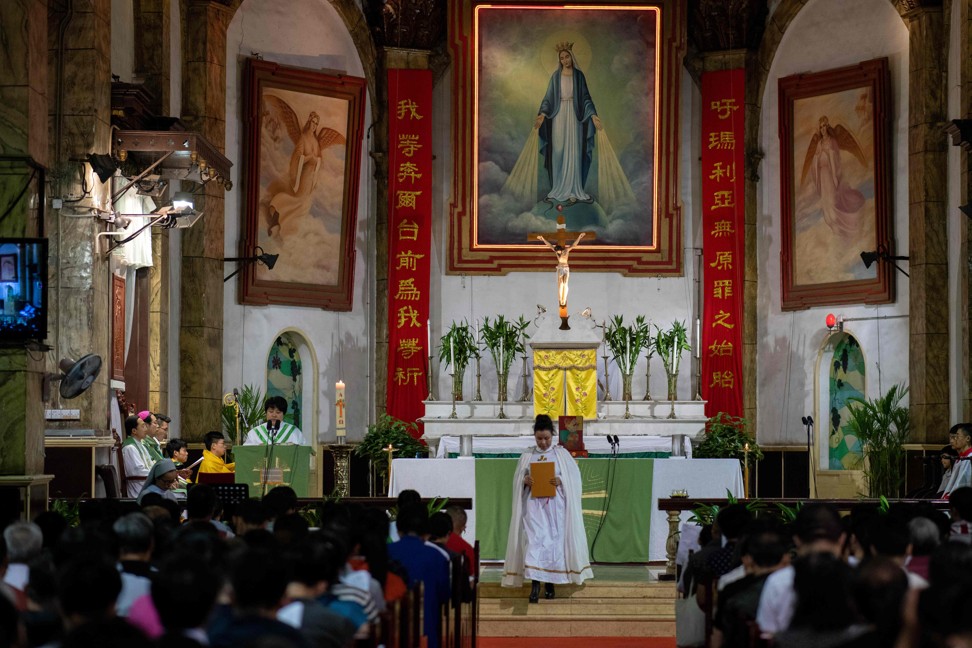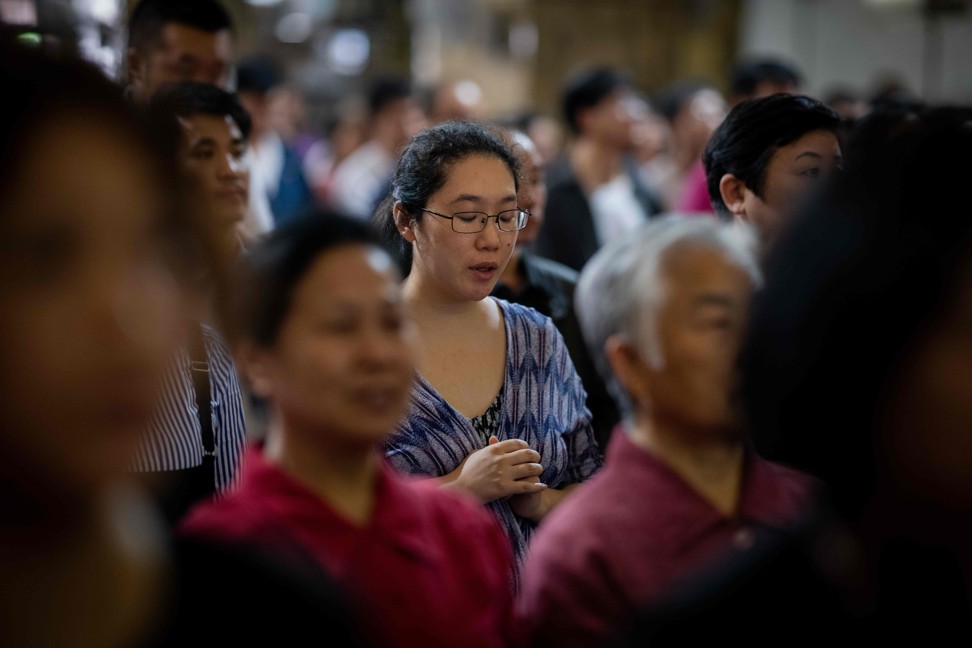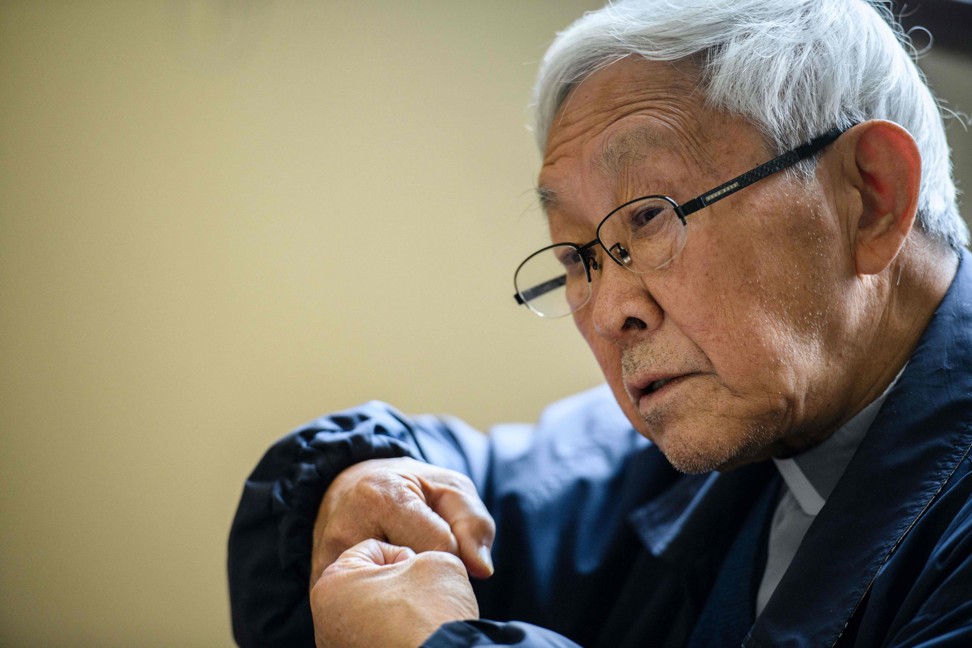
China’s state-sanctioned Catholic Church vows to remain ‘independent’ after Vatican deal
Governing body says it will ‘uphold the fine tradition of loving the country and the church’ and ‘the path that suits a socialist society’
The organisations that run China’s state-sanctioned Catholic Church said on Sunday they will continue to operate “independently”, while also pledging their “wholehearted support” for Beijing’s deal with the Vatican on the appointment of bishops.
The Chinese Patriotic Catholic Association (CPCA) and the Bishops’ Conference of the Catholic Church in China (BCCCC), neither of which is recognised by the Holy See, made the comments in a statement on their shared website.
The remarks came a day after the signing of a historic “provisional agreement” between China and the Vatican that seeks to resolve a decades-long struggle over who has the authority to appoint Catholic leaders in the world’s most populous nation.
Under the deal, Pope Francis recognised seven excommunicated bishops appointed by Beijing without papal approval. According to a person familiar with the discussions, Beijing would in return recognise some, though not all, of the so-called underground bishops chosen by the Vatican.
But with the full text of the agreement yet to be made public, it remains unclear how much say the Pope will have in vetting bishop nominees in China, where the officially atheist Communist Party maintains a tight grip on all religions.
Vatican signs historic deal with China on bishop appointments
In Sunday’s statement, an unnamed spokesperson said the Chinese Catholic Church has “a deep love for its motherland” that strives for the “great rejuvenation” of the nation for all Chinese people under the leadership of the party.
“We will uphold the fine tradition of loving the country and the church, the principle of running the church independently, the direction of sinicisation, and the path that suits a socialist society,” it said.
Fearing Western influence, China’s communist leaders have for decades insisted on a self-supporting and self-governing church independent of the global community. President Xi Jinping has also launched a sweeping campaign to “sinicise religion”, which demands all religious groups practise their faith in a Chinese way.
China silent on possible Vatican delegation to Beijing
The statement said also that China’s Catholic Church “belongs to the same faith” as Catholic churches all over the world.
“We are willing to carry out friendly exchanges and enhance understanding [with them] on the basis of independence, mutual respect, equality and amity,” it said.
Beijing and the Vatican severed diplomatic ties in 1951, two years after the officially atheist Communist Party came to power and began expelling foreign missionaries.
To oversee the Catholic community, Beijing in 1957 established the CPCA, which rejects the authority of the Holy See and appoints its own bishops.
In 1980, four years after the end of the Cultural Revolution, during which then chairman Mao Zedong sought to eradicate all religions, the BCCCC was founded with just 20 state-approved bishops.
Betrayed and abandoned: why China’s underground Catholics feel like Jesus on Good Friday
Today, China has about 12 million Catholics, of which a significant number worship in “underground” churches not sanctioned by the state but led by about 36 bishops whose allegiance is to the Pope.
Critics of the new deal – including Hong Kong’s Cardinal Joseph Zen, the most senior Catholic cleric on Chinese soil – accused the Vatican of “selling out” underground worshippers, who have for decades risked arrest and persecution by the Communist Party.
Of the seven excommunicated bishops now recognised by the Pope, two – both of whom are deputy chairmen of the CPCA and BCCCC – will replace underground bishops who have endured years of hardship due to their loyalty to the Pope.
Beijing’s deal with the Vatican comes as China’s leaders continue to crack down on Christians and other religious groups they regard as a challenge to Communist Party rule.
New regulations put in place in February, including hefty penalties for unofficial congregations, sparked a fresh wave of harassment and the closure of many unofficial churches, including the biggest underground Protestant church in the country, which closed down last month.




